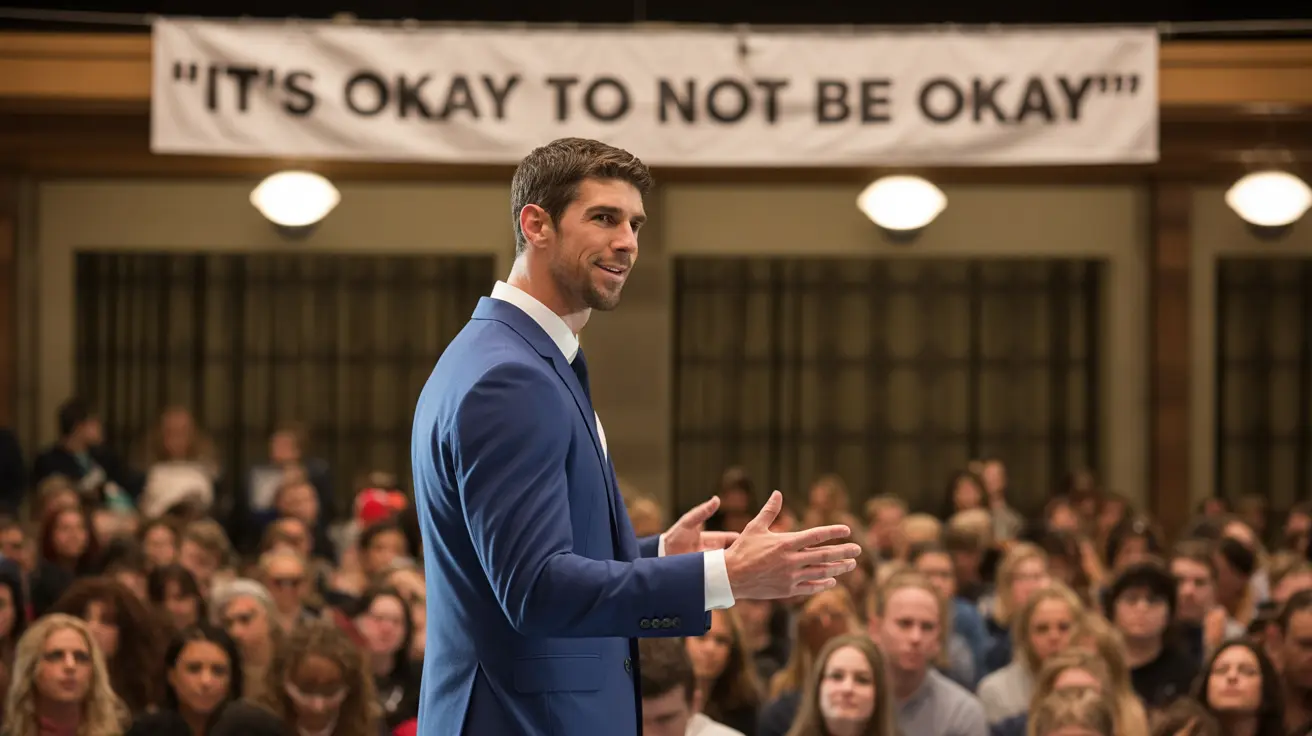Olympic swimming legend Michael Phelps has become a powerful advocate for mental health awareness, openly sharing his struggles with depression and anxiety throughout his remarkable athletic career. His willingness to discuss these challenges has helped reshape conversations about mental health in sports and society at large.
By speaking candidly about his experiences, Phelps has demonstrated that mental health challenges can affect anyone, regardless of their achievements or success. His advocacy has been particularly influential in encouraging athletes and men to seek help and support when needed.
The Olympic Pressure and Mental Health Impact
During his competitive career, Phelps faced intense pressure as the world's most decorated Olympian. This pressure, combined with the emotional highs and lows of elite competition, significantly impacted his mental well-being. He has described experiencing severe depression, particularly after major competitions, when the adrenaline and focus of training and competing suddenly disappeared.
The post-Olympic period proved especially challenging, as Phelps struggled to find purpose and direction outside of the pool. These experiences highlighted the unique mental health challenges that elite athletes face when transitioning between competition phases or retiring from their sport.
Finding Help Through Therapy
Phelps's decision to seek therapy marked a turning point in his mental health journey. Through professional support, he developed crucial coping mechanisms and learned to address his emotional challenges more effectively. This step was particularly significant given the persistent stigma surrounding mental health treatment, especially among male athletes.
The therapy process helped Phelps understand that mental health management is an ongoing journey rather than a destination. He learned to recognize his triggers, develop healthy coping strategies, and maintain open communication about his emotional well-being.
Advocacy and Impact
Today, Phelps uses his platform to emphasize that mental health challenges require ongoing attention and care. He regularly speaks about how depression and anxiety are conditions that need consistent management, comparing them to physical health conditions that require continuous care.
His advocacy has particularly resonated with male athletes and sports professionals, helping to break down traditional barriers that often prevent men from seeking mental health support. Through various initiatives and public speaking engagements, Phelps continues to encourage open dialogue about mental health in sports communities.
Frequently Asked Questions
What mental health challenges has Michael Phelps publicly shared from his Olympic career?
Michael Phelps has openly discussed his battles with depression and anxiety throughout his Olympic career, including experiencing severe depressive episodes, particularly after major competitions. He has also revealed struggles with identity issues and the intense pressure of being in the global spotlight.
How did therapy help Michael Phelps manage his depression and anxiety?
Therapy provided Phelps with essential tools and coping mechanisms to manage his mental health. It helped him develop better emotional awareness, learn to communicate about his feelings, and create strategies for handling stress and pressure effectively.
What signs of post-Olympic depression did Michael Phelps experience after major competitions?
After major competitions, Phelps experienced feelings of emptiness, loss of purpose, and severe depression. The sudden shift from intense training and competition to normal life created emotional challenges and adjustment difficulties.
Why does Michael Phelps say mental health issues like depression and anxiety never fully disappear?
Phelps emphasizes that mental health conditions require ongoing management, similar to chronic physical conditions. He describes them as continuous challenges that need regular attention, self-awareness, and proper care rather than issues that can be permanently "cured."
How does Michael Phelps encourage men and athletes to approach mental health and seek support?
Phelps advocates for normalizing mental health discussions among athletes and men, emphasizing that seeking help is a sign of strength, not weakness. He encourages open dialogue about mental health challenges and promotes therapy as an essential tool for maintaining emotional well-being.




